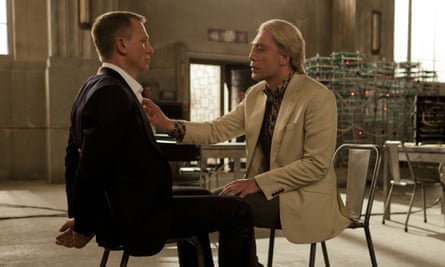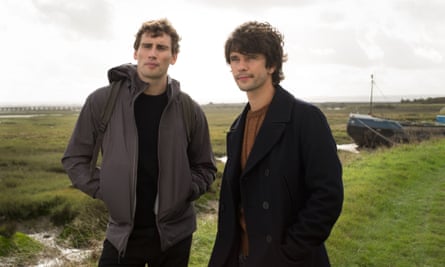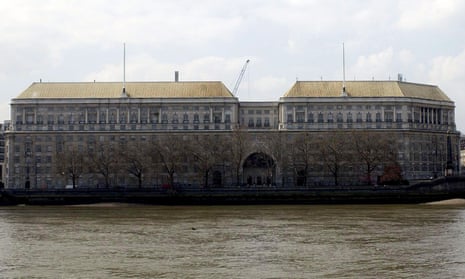If you had walked past MI5’s headquarters in central London earlier today, you might have noticed the rainbow flag flying above the building. It is not the first time – it flew there on the day of London’s Pride festival last summer. But this time it was raised to mark the accolade of Stonewall’s employer of the year: Britain’s Security Service came top in the annual Stonewall Workplace Equality Index. The index measures an organisation’s work in tackling discrimination and creating an inclusive workplace for lesbian, gay, bi and trans people.
MI5 in particular, it might be argued, needs to be inclusive. Much of its work, as it director general Andrew Parker, said, “goes on by necessity out of view”. Its employees cannot talk about their work with outsiders. They need a workplace that is tolerant and welcoming, and an esprit de corps that encourages diversity.
Historically, when homosexuality was illegal, spying might have been a particularly attractive career for people used to hiding their personal – as well as political – proclivities. They could keep secrets, and tell lies. Perhaps the most notorious gay spies were Guy Burgess and Anthony Blunt, two members of the Cambridge ring whose circle was imbued with sexual liberation, of all kinds. (There was one exception. The ascetic John Cairncross told me years after he was exposed as the “Fifth Man” that he did not take to the fellow members of the spy ring because of their class – which protected them from exposure – and lifestyle.)

Now even James Bond, the most highly charged heterosexual of all spies, is confronted in Skyfall with a flirtatious gay scene when villain Raoul Silva, played by Javier Bardem, undoes Bond’s shirt and strokes his chest while Bond is tied to a chair. “First time for everything?” he asks. Daniel Craig’s Bond, replies: “What makes you think this is my first time?”
In 1954, Alan Turing, the codebreaking genius of wartime Bletchley Park, the forerunner of GCHQ, died in an apparent suicide after battling with his sexuality and being sentenced to chemical castration. More than 50 years later, Gareth Williams, the GCHQ maths genius, was found dead in his London flat while seconded to MI6. His death , unsurprisingly, is often thought to have been an inspiration for the recent BBC2 series, London Spy. The similarities between Williams and Alex, played by Edward Holcroft, are pretty clear – although writer Tom Rob Smith has said his character is a work of fiction. Nevertheless, these are cases – one fact, the other fiction – when their employers did not face up to a duty of care in a profession which can be uniquely lonely.
MI5 now has a LGBT “champion” to promote diversity, an 80-plus-strong LGBT network, and a “reverse mentoring” scheme for staff who want to develop their understanding of diversity. Staff are offered “unconscious bias training”. Meanwhile MI6, Bond’s employer, uses Stonewall’s logo on recruitment ads appealing for people who are “able to get on with diverse groups”.
Until the early 90s, MI5 – like the Secret Intelligence Service, MI6 – prevented gay people from security-sensitive posts on the grounds they were vulnerable to blackmail. MI5 heading Stonewall’s table will be leaving many of Britain’s former security chiefs aghast – and be a lesson to any of them still in post, trying to hold fast to their service’s old and damaging ethos.

‘The Secret Service used to embody the sense that gay people were not part of mainstream society’ – London Spy writer Tom Rob Smith on MI5
The news that MI5 has come top of Stonewall’s employers list is wonderful. My drama London Spy was never intended as a commentary about these organisations today. It was grappling with a historic question, which is why were organisations such as MI5 so adamant that gay people were unsuitable for the secret services? I wanted to look at it from a slightly different perspective, which was that if you are aware that your country would not employ you, or would prosecute you for your sexuality, are you in a sense made a spy by your country?
If that link to your country is cut at a very early age, you look for other countries where you might be able to be happy or welcome. The Soviet Union peddled the myth that there was equality over there, that gay people would be free and happy, and you can see why that was conceptually appealing to some. It was never the fact that gay people were somehow intrinsically less trustworthy, which was certainly the impression having the blanket ban on gay employees gave out. And that was always what the character of Scotty [played by Jim Broadbent] was grappling with historically.
We often talk about equality as somehow doing things for people or minorities. Actually, it benefits society at large. It’s clearly not beneficial to have a group of people feeling disconnected from their country.
One of the reasons this news is so wonderful is that the Secret Service used to embody a sense that gay people were not part of mainstream society. And so for it to go to being the best place for someone who’s gay to work is a really remarkable transformation.
Tom Rob Smith (as told to Daniel Martin)

Comments (…)
Sign in or create your Guardian account to join the discussion